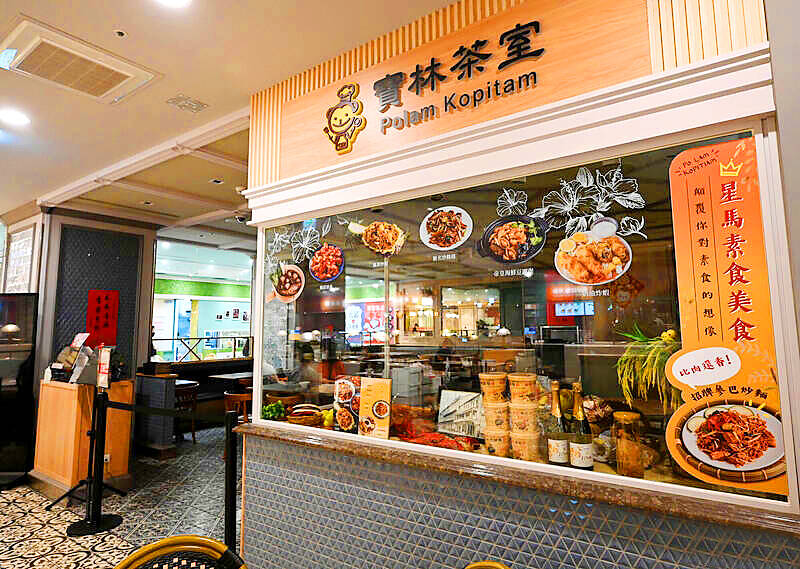Medical professionals yesterday said that suspected food poisoning deaths revolving around a restaurant at Far Eastern Department Store Xinyi A13 Store in Taipei could have been caused by one of several types of bacterium.
Ho Mei-shang (何美鄉), an epidemiologist at Academia Sinica’s Institute of Biomedical Sciences, wrote on Facebook that the death of a 39-year-old customer of the restaurant suggests the toxin involved was either “highly potent or present in massive large quantities.”
People who ate at the restaurant showed symptoms within hours of consuming the food, suggesting that the poisoning resulted from contamination by a toxin and not infection of the digestive system, Ho said.

Photo: Tien Yu-hua, Taipei Times
The substance that tainted the food could be toxin from poisonous mushrooms or one of two bacterium, Bacillus cereus or Clostridium botulinum, if reports of liver failure being a shared symptom are true, she said.
The bacterium thrive in temperatures above 25°C and in starchy environments, with the people affected reportedly having consumed pho or cellophane noodles, she said.
Poor food preparation procedures, such as leaving noodles at room temperature for too long could allow bacterial cultures to form, Ho said, adding that cooking does not reliably neutralize their toxins.
The government is advised to keep in mind that deliberate poisoning can also be a possible explanation for the incident, she said, adding that national security agencies would have to be involved to deal with sabotage by mass poisoning.
Lee Chien-chang (李建璋), a doctor of emergency medicine at National Taiwan University Hospital, said that B cereus is a possible culprit for the poisoning.
Its spores and secreted toxins can survive being stir-fried and have caused several documented cases of poisoning, dubbed fried rice syndrome, Lee said.
B cereus poisoning is also difficult to detect, as traces of the bacteria are excreted relatively quickly, he said.
Huang Chien-hsien (黃建賢), chief epidemiologist at Shin Kong Wu Ho-su Memorial Hospital in Taipei, which treated a 66-year-old who died of the alleged food poisoning yesterday, said that the person had gastroenteritis, so stool and blood tests were taken, but the common bacterial or viral pathogens that cause stomach flu were not found.
Staphylococcus aureus in food can multiply and produce toxins that can make people ill, but the patient’s symptoms onset was faster and the symptoms seem more serious than S aureus food poisoning, Huang said.
Asked about the possibility that Bongkrek acid was involved, he said past cases were mostly linked to cooked food that had been left at room temperature for too long.
However, the bacteria is not a specific part of routine inspections, so it is unclear whether it is involved in this week’s case, he said, adding that Food and Drug Administration testing would likely resolve the matter.

An essay competition jointly organized by a local writing society and a publisher affiliated with the Chinese Communist Party (CCP) might have contravened the Act Governing Relations Between the People of the Taiwan Area and the Mainland Area (臺灣地區與大陸地區人民關係條例), the Mainland Affairs Council (MAC) said on Thursday. “In this case, the partner organization is clearly an agency under the CCP’s Fujian Provincial Committee,” MAC Deputy Minister and spokesperson Liang Wen-chieh (梁文傑) said at a news briefing in Taipei. “It also involves bringing Taiwanese students to China with all-expenses-paid arrangements to attend award ceremonies and camps,” Liang said. Those two “characteristics” are typically sufficient

A magnitude 5.9 earthquake that struck about 33km off the coast of Hualien City was the "main shock" in a series of quakes in the area, with aftershocks expected over the next three days, the Central Weather Administration (CWA) said yesterday. Prior to the magnitude 5.9 quake shaking most of Taiwan at 6:53pm yesterday, six other earthquakes stronger than a magnitude of 4, starting with a magnitude 5.5 quake at 6:09pm, occurred in the area. CWA Seismological Center Director Wu Chien-fu (吳健富) confirmed that the quakes were all part of the same series and that the magnitude 5.5 temblor was

The brilliant blue waters, thick foliage and bucolic atmosphere on this seemingly idyllic archipelago deep in the Pacific Ocean belie the key role it now plays in a titanic geopolitical struggle. Palau is again on the front line as China, and the US and its allies prepare their forces in an intensifying contest for control over the Asia-Pacific region. The democratic nation of just 17,000 people hosts US-controlled airstrips and soon-to-be-completed radar installations that the US military describes as “critical” to monitoring vast swathes of water and airspace. It is also a key piece of the second island chain, a string of

The Central Weather Administration has issued a heat alert for southeastern Taiwan, warning of temperatures as high as 36°C today, while alerting some coastal areas of strong winds later in the day. Kaohsiung’s Neimen District (內門) and Pingtung County’s Neipu Township (內埔) are under an orange heat alert, which warns of temperatures as high as 36°C for three consecutive days, the CWA said, citing southwest winds. The heat would also extend to Tainan’s Nansi (楠西) and Yujing (玉井) districts, as well as Pingtung’s Gaoshu (高樹), Yanpu (鹽埔) and Majia (瑪家) townships, it said, forecasting highs of up to 36°C in those areas